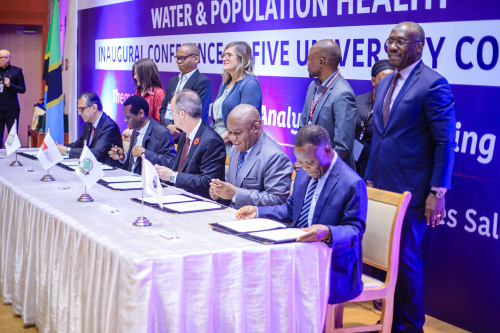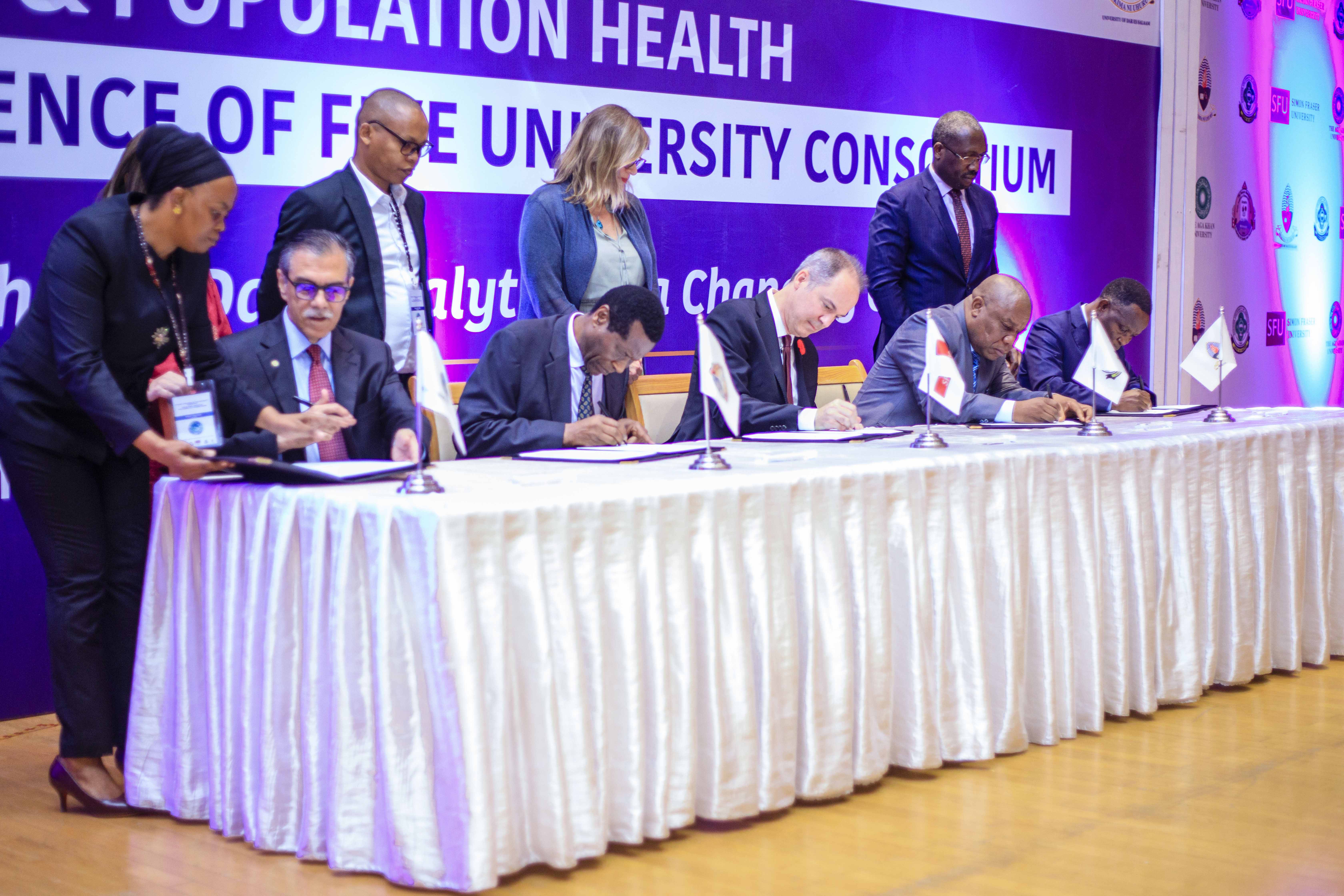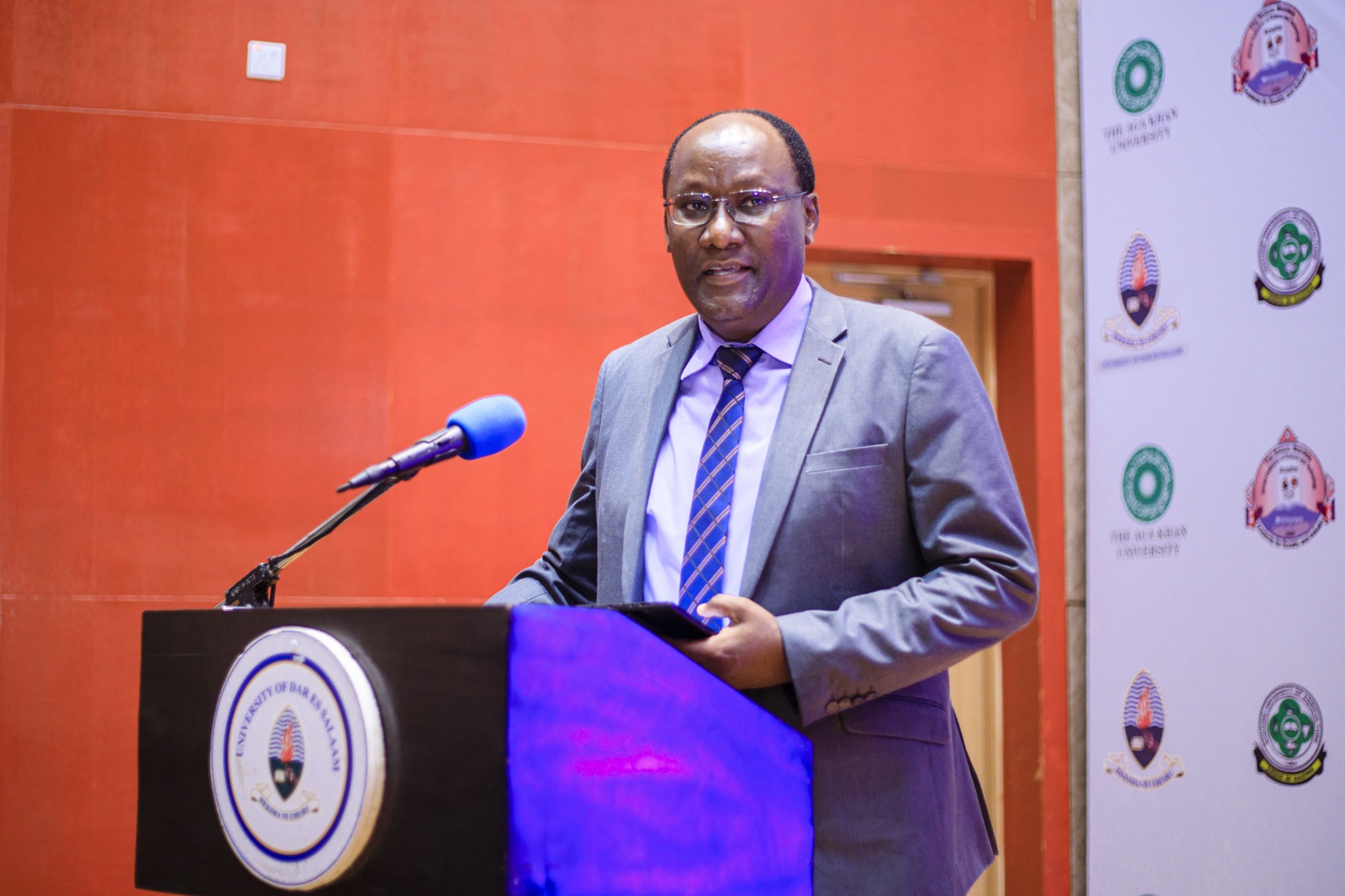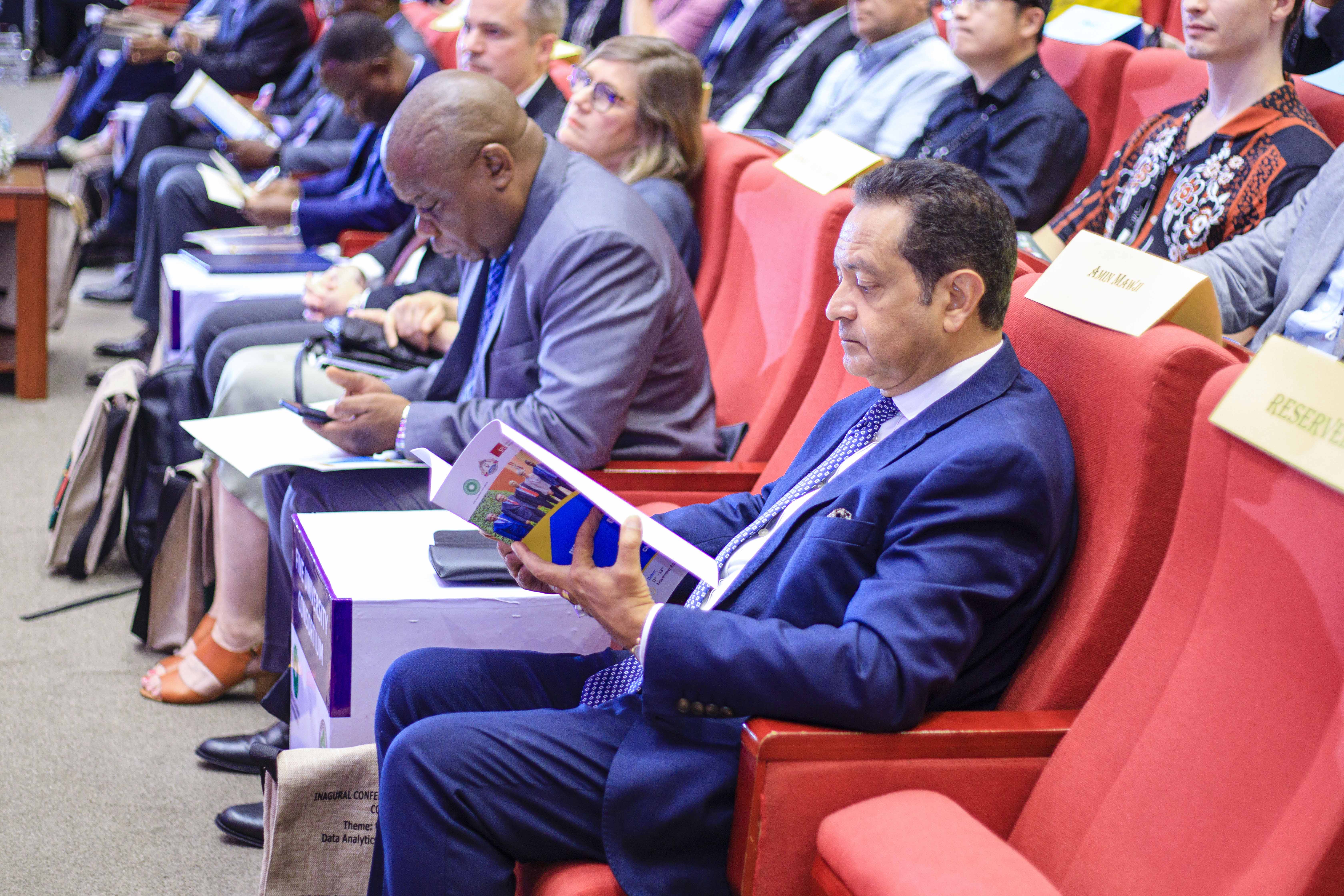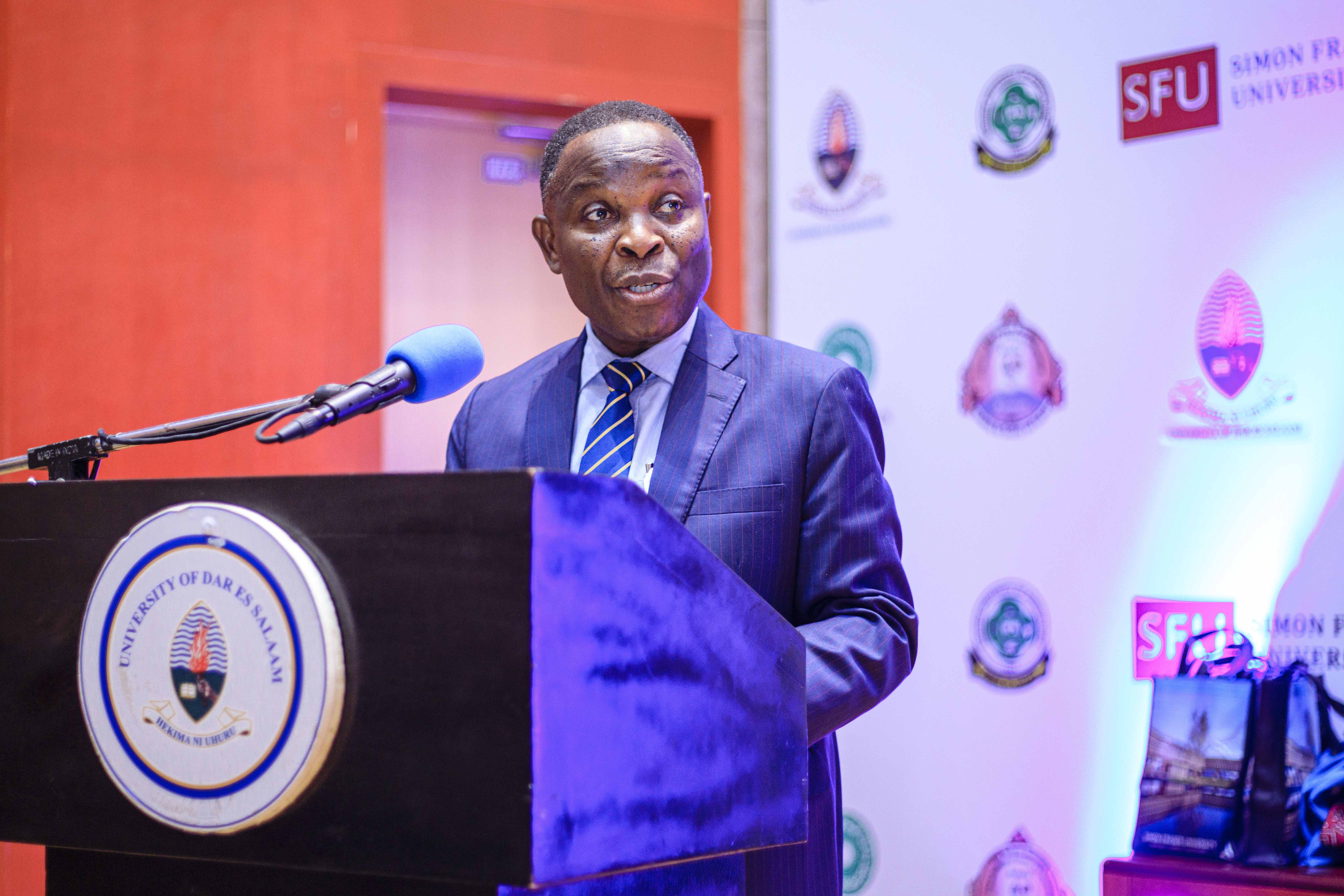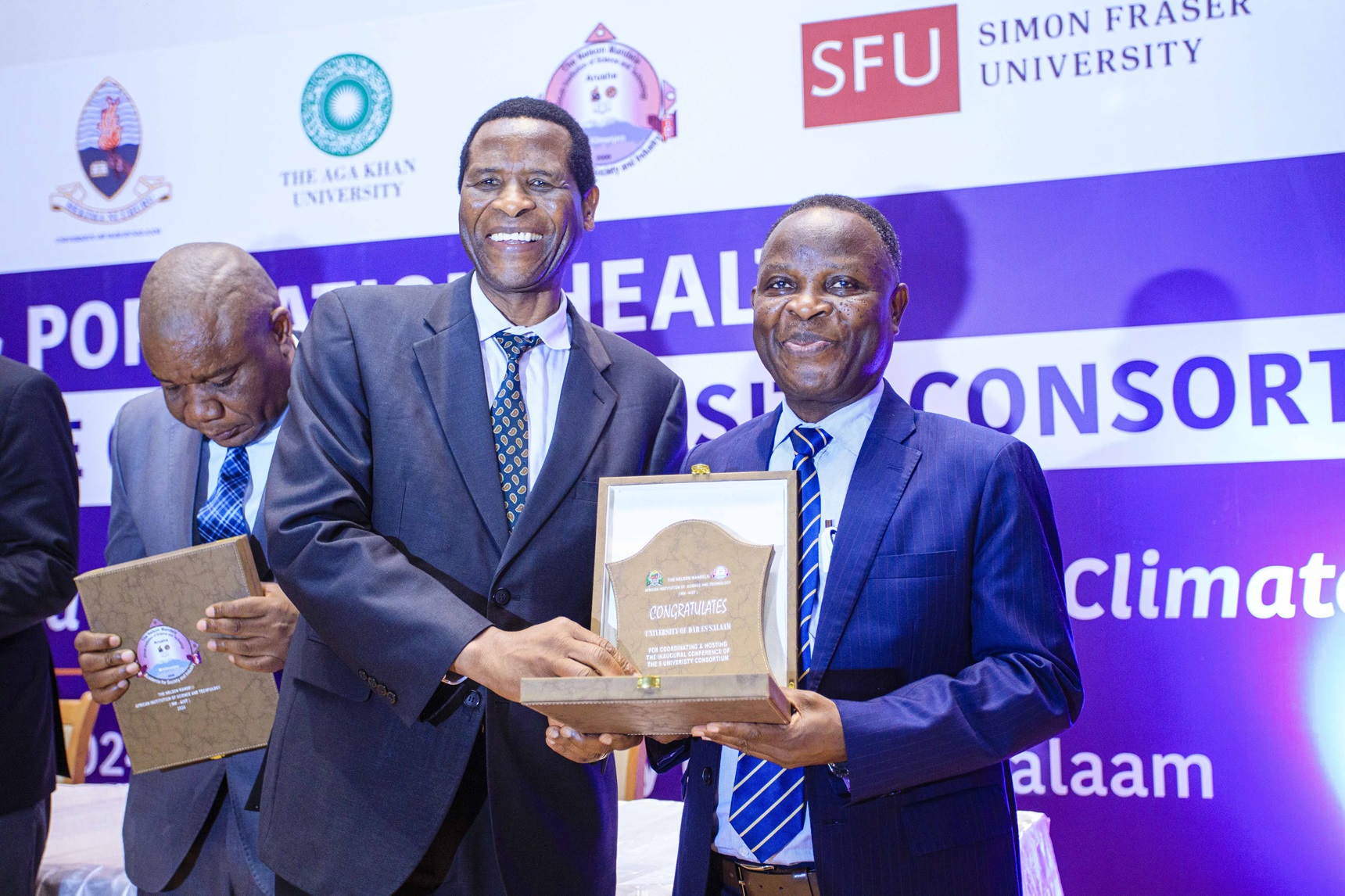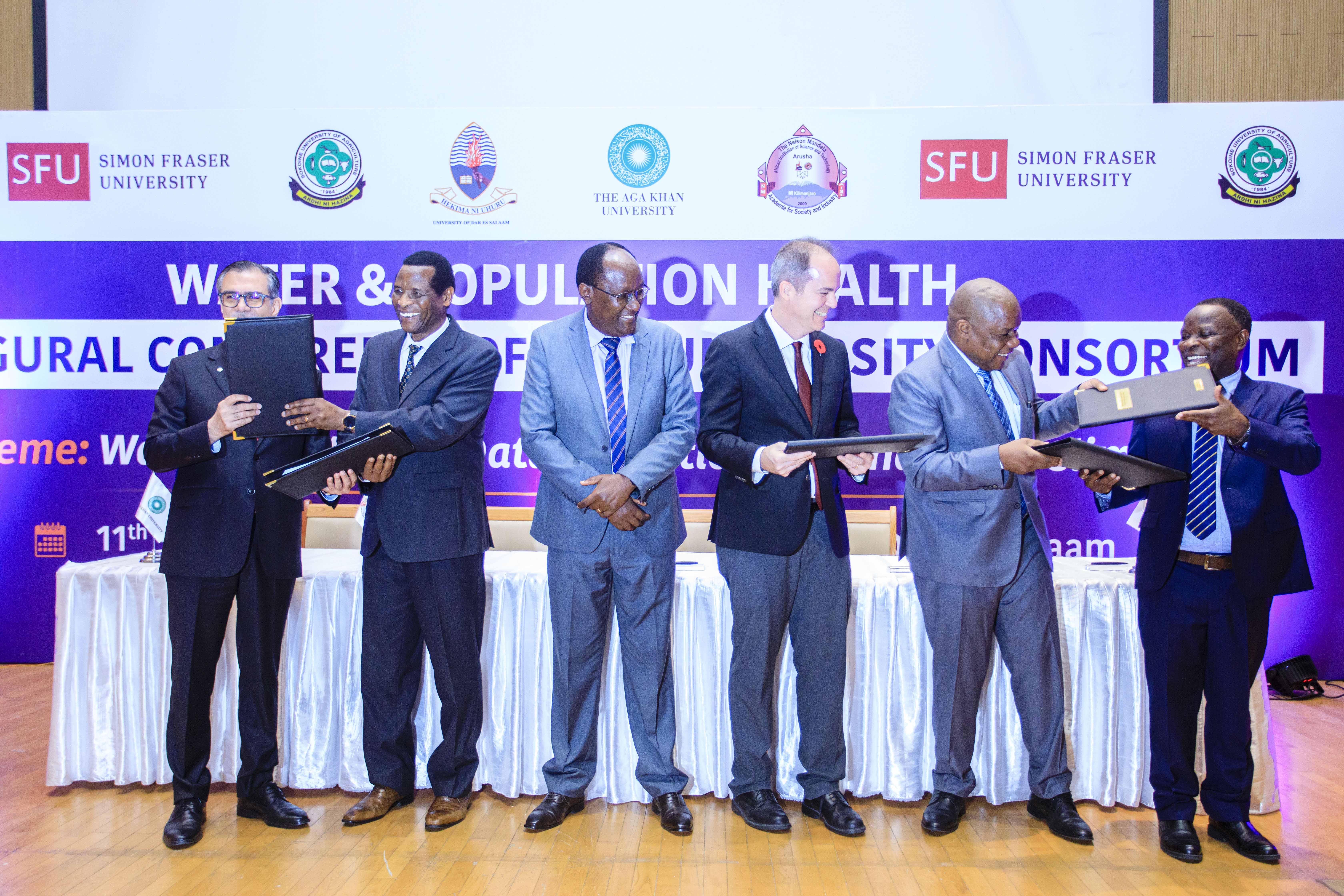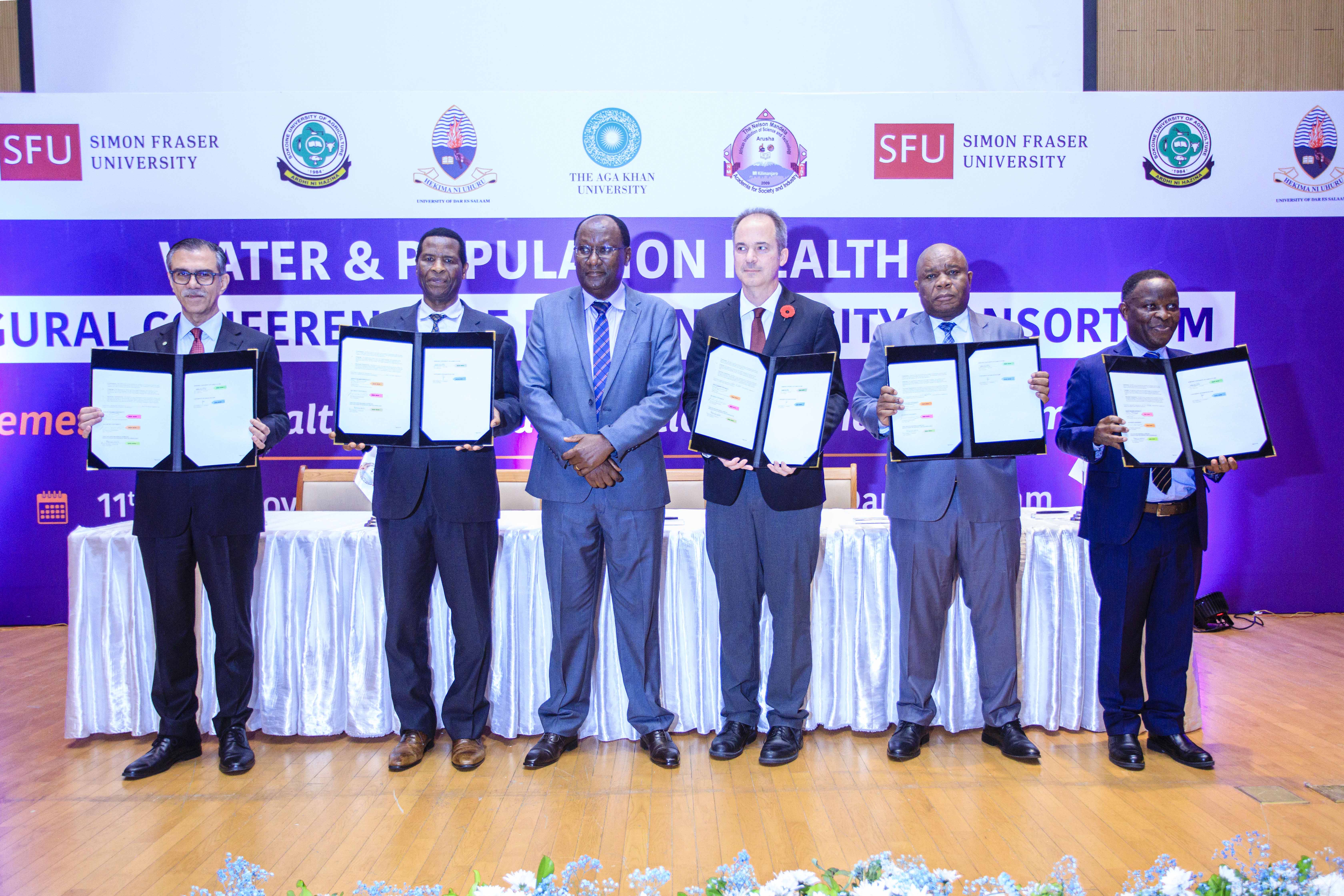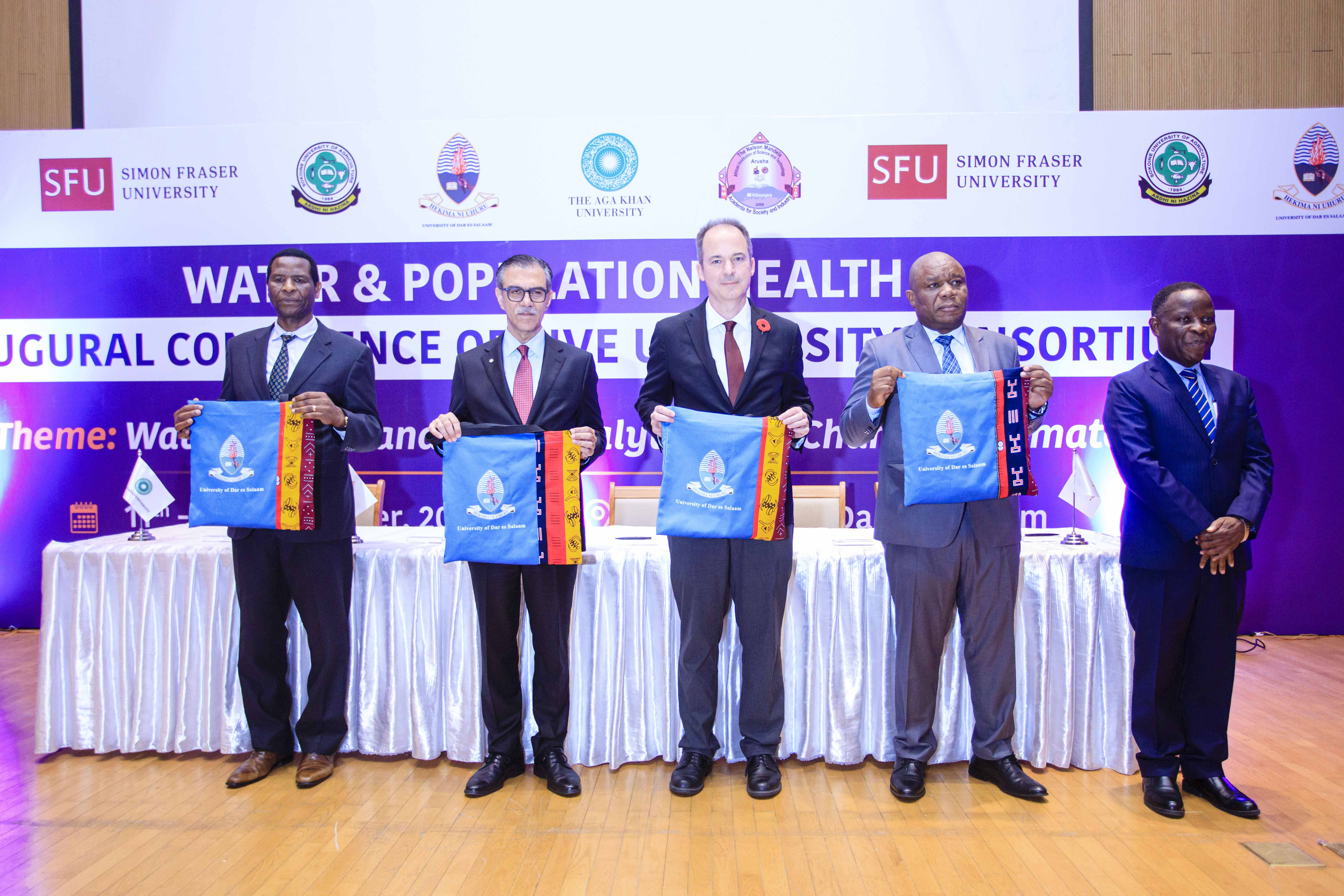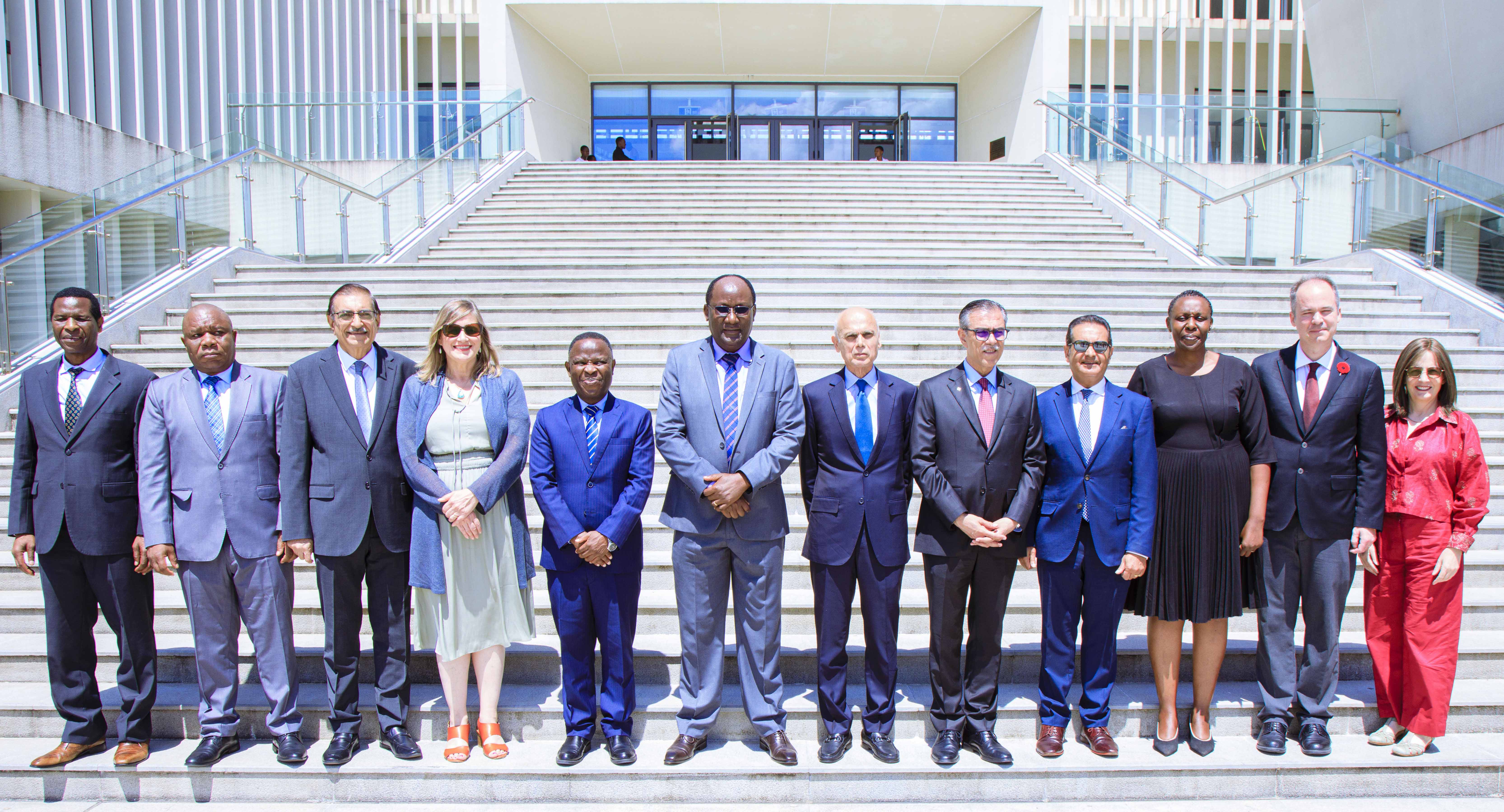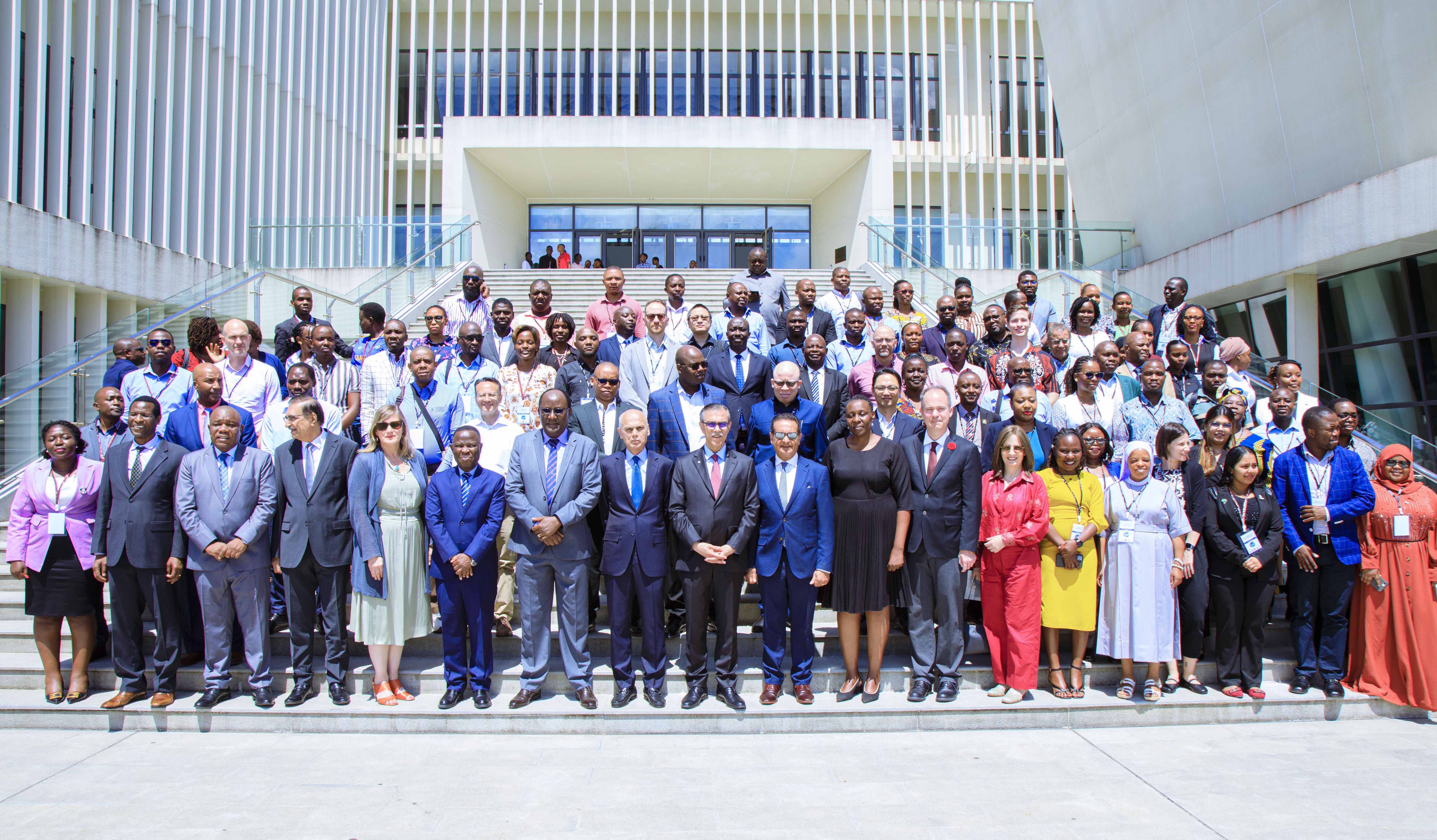News
Launch of Five University Consortium unveils a new era of academic collaboration
By Zamda George, CMU
The University of Dar es Salaam recently hosted the landmark inauguration of the Five University Consortium, bringing together five giant universities for a solid academic and research collaboration.
Universities which form this consortium include the University of Dar es Salaam (UDSM), Aga Khan University (AKU), Nelson Mandela African Institution of Science and Technology (NM-AIST), and Sokoine University of Agriculture (SUA) and Simon Fraser University (SFU) of Canada.
According to the agreement documents, the consortium aims to foster enhanced academic collaboration, environmental stewardship, and innovation through mutual cooperation, marking a new chapter in international research and education.
The Deputy Permanent Secretary, Ministry of Education, Science and Technology, Prof. Daniel Mushi who represented the Minister, Prof. Adolf Mkenda (MP.) as the Guest of Honour, underscored the significance of the consortium in advancing educational quality and addressing societal challenges through collaboration.
"This 5UC initiative is one of the best approaches that can be used to sustainably address challenges such as inadequate resources, infrastructure, and facilities. Universities are at the heart of finding ways in which our countries will respond to global challenges like climate change and increasing demand for water resources”, said Prof. Mushi.
The event, which featured the signing of a Memorandum of Understanding (MoU) by representatives of each institution, aimed at formalizing their commitment to joint research and capacity-building initiatives.
Addressing pressing global issues
The theme of the inaugural conference, "Water, Health, and Data Analytics in a Changing Climate," underscored the consortium's dedication to addressing pressing global issues through interdisciplinary approaches.
UDSM Vice Chancellor Prof. William A. L. Anangisye highlighted the conference's theme, emphasizing its relevance to global challenges. "Our partnership, together with this conference theme, captures our intention as universities to build capacity to confront challenges such as climate change, which poses one of the greatest existential threats to modern civilization”.
Dr. Sulaiman Shahabuddin, President and Vice Chancellor of AKU, spoke passionately about the unity underpinning the consortium and its potential impact. “At the heart of this collaboration is the shared objective of tackling climate change through academic research, knowledge exchange, and innovative solutions,”
Dr. Shahabuddin added, “The consortium represents an important step toward uniting our strengths in science, research, and education to confront one of the greatest challenges of our time".
Prof. Dugan O’Neil, Vice President of Research and Innovation at SFU, noted that the diversity between Tanzania and Canada offered unique research opportunities.
“This collaboration extends beyond research and innovation. The institutions are committed to working together on educational initiatives that will benefit students, faculty, and staff. By pooling our resources and expertise, we can support learning and research on a broader scale,” he stated.
Representing NM-AIST, Prof. Anthony Mshandete underscored the institution’s commitment to leveraging science and technology for Africa's development. He affirmed NM-AIST's dedication to fostering the consortium’s initiatives for the benefit of the global community, enhancing the collective goal of developing technology-driven solutions for pressing environmental and health challenges.
Prof. Maulid Mwatawala, representing SUA, emphasized the consortium's potential to benefit local farmers, with a focus to improve farmers’ livelihoods, particularly those affected by climate change.
“This consortium will allow us to make progress on water access, disease control for humans and livestock, and address the two-sided impact of climate change on agriculture,” he said while highlighting SUA's mission to support agricultural communities.
The conference covered critical topics such as climate resilience, health impacts of environmental changes, and innovations in water management. It provided an immersive platform for academics, researchers, and policymakers to engage in knowledge exchange, aiming to develop actionable insights and solutions in response to climate challenges.
Other News
Wed, 08.Jan.2025 : President Mwinyi proclaims UDSM-IMS role in Blue Economy policySun, 05.Jan.2025 : Ministry of Blue Economy, UDSM in key conversations ahead of historic Foundation Stone laying at IMS
Fri, 20.Dec.2024 : ALAF Limited yatoa ufadhili wa masomo ya Umahiri katika Kiswahili kwa wanafunzi wa UDSM
Thu, 19.Dec.2024 : UDSM Herbarium: an invaluable resource fostering conservation, plant taxonomy and ecology
Sat, 14.Dec.2024 : Tracer study findings stress on curriculum to meet national human resource needs
Sat, 14.Dec.2024 : Prof. Mushi calls for ethical and inclusive innovation as Africa higher education leverages AI
Fri, 13.Dec.2024 : UDSM kuwa kituo cha utafiti wa Sayansi ya Bahari barani Afrika
Fri, 13.Dec.2024 : Multi-billion Sida funds to boost research on sustainable development at UDSM


